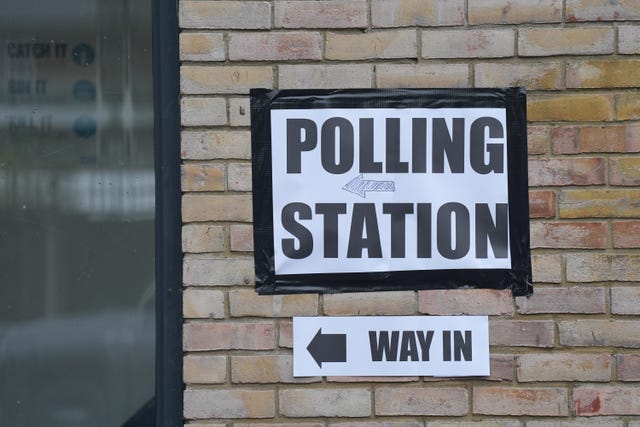Too late to prevent AI risk to elections this year, expert claims
Dame Wendy Hall also suggested social media sites could limit posts about politics on polling day to prevent misinformation.

It is too late to prevent this year’s general election from the risks of misinformation spread via artificial intelligence, an eminent computer scientist has warned.
Dame Wendy Hall, who co-chaired the Government’s 2017 AI review, also suggested social media sites could limit posts about politics on polling day as a means of preventing misinformation.
Elections across the world in 2024 could be impacted by AI-generated deepfake images and videos, the regius professor of computer science at the University of Southampton suggested while speaking to BBC Radio 4’s Today programme podcast.
UK voters are going to the polls on Thursday to elect local councillors, regional mayors, and police and crime commissioners.
A general election is expected to take place later this year, though Prime Minister Rishi Sunak is yet to name a date for the poll.
In what has been dubbed a year of elections, other contests which could shape the future direction of international relations include the presidential poll in the USA in November.
India, the world’s most populous democracy, is currently in the midst of a general election.
Asked about the risks of AI to the democratic process, Dame Wendy told the BBC: “It is almost too late to do it for this year now, to actually act in any concerted way.
“We should have been thinking about it earlier and I was worried, I think what the safety institutes are doing is incredibly important.

“But we should also keep thinking about how AI can be used for the bad in democratic elections and the use of deepfakes.
“The cat is out of the bag really, so we are going to have to, I think we need a lot of public awareness around this to make people – and I know that the media are thinking about this – to make people think about where have they got this information from, what is the provenance of this information.
“Because there is no time to change laws or bring in big technical fixes before these elections start happening now.”
The AI expert also suggested social media companies like Facebook and X could do more to prevent misinformation on their platforms.
While acknowledging that the idea was not fully fleshed out, she said: “We don’t allow campaigning on the day of the election. We could put some sort of embargo into what you can put on social media very close to the election.
“I am not trying to stop freedom of speech at all, but in terms of working with the companies to check what is being put around about the politicians who are standing.”
Even if such a ban were introduced, its impact could be negligible on postal voters, who can submit their ballot ahead of polling day.
At the 2019 general election, some 21% of all valid votes cast were postal votes, according to the House of Commons Library.





